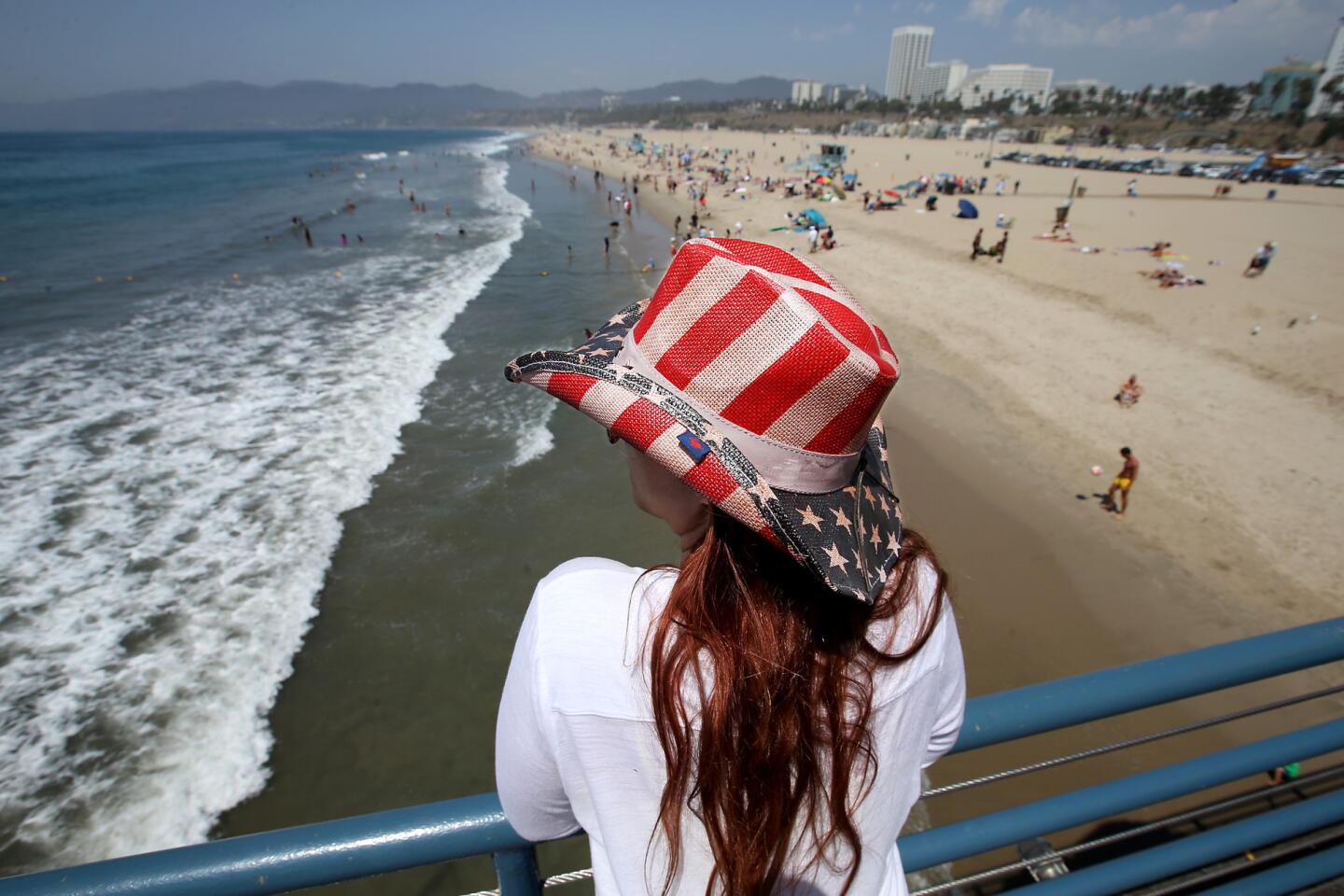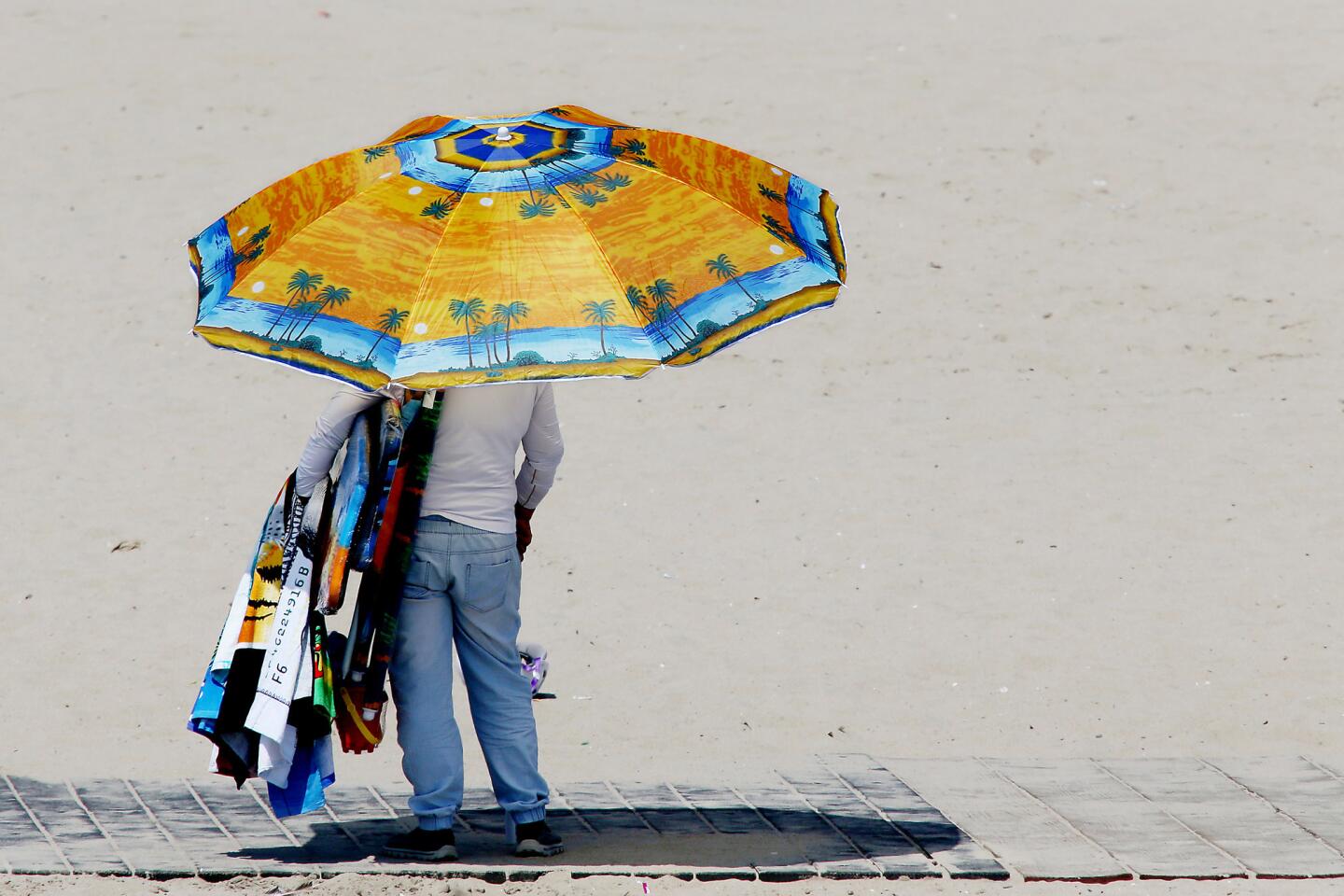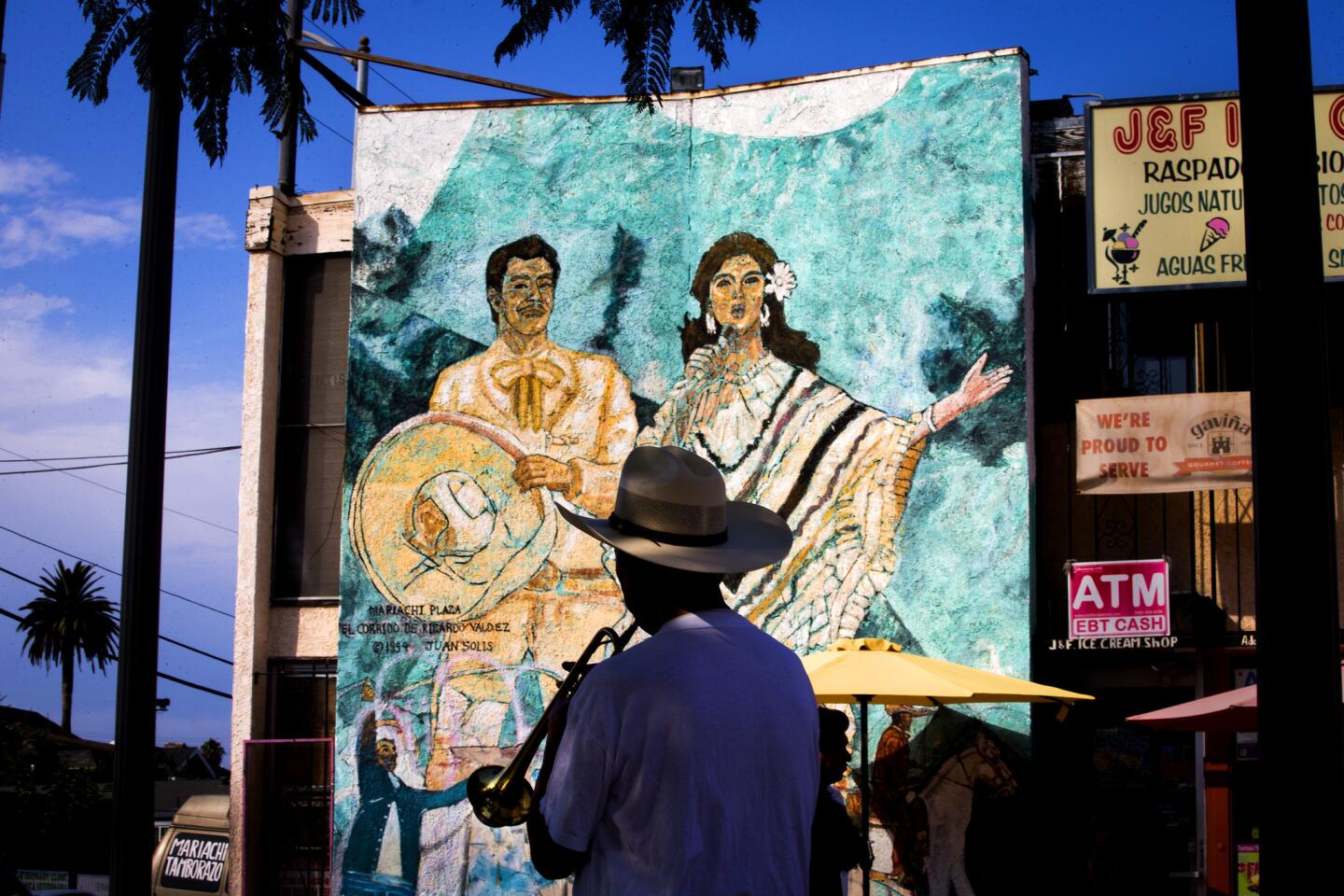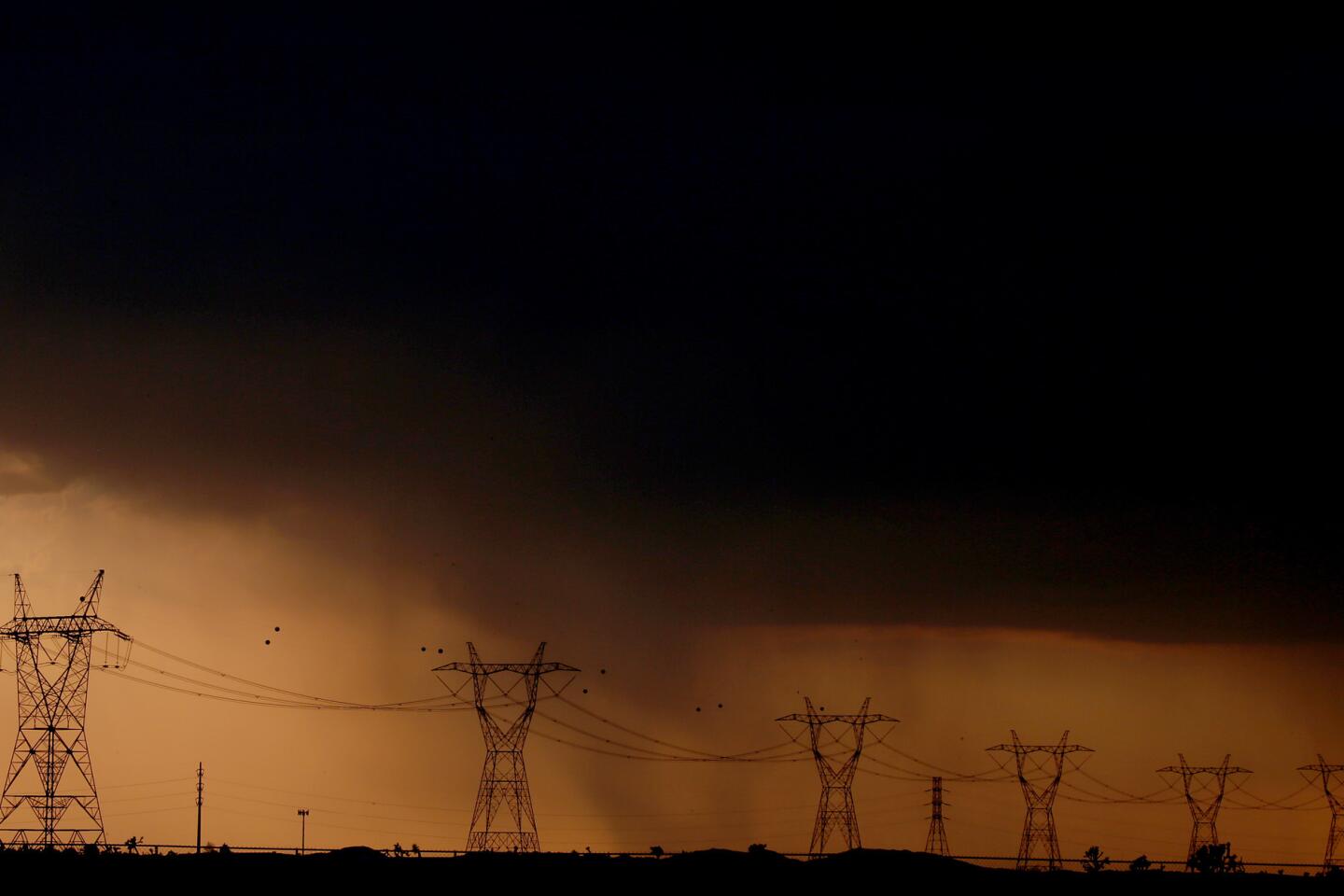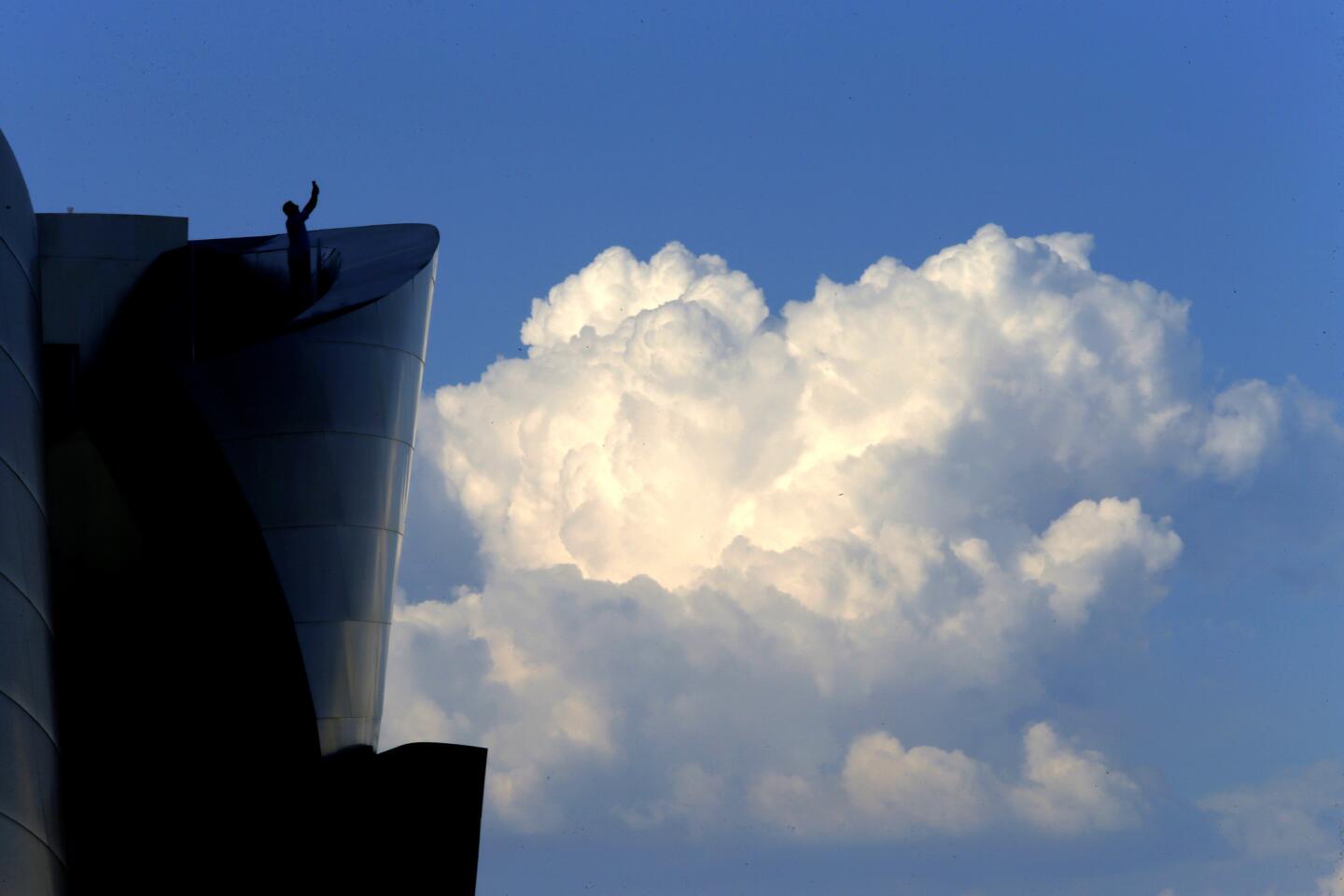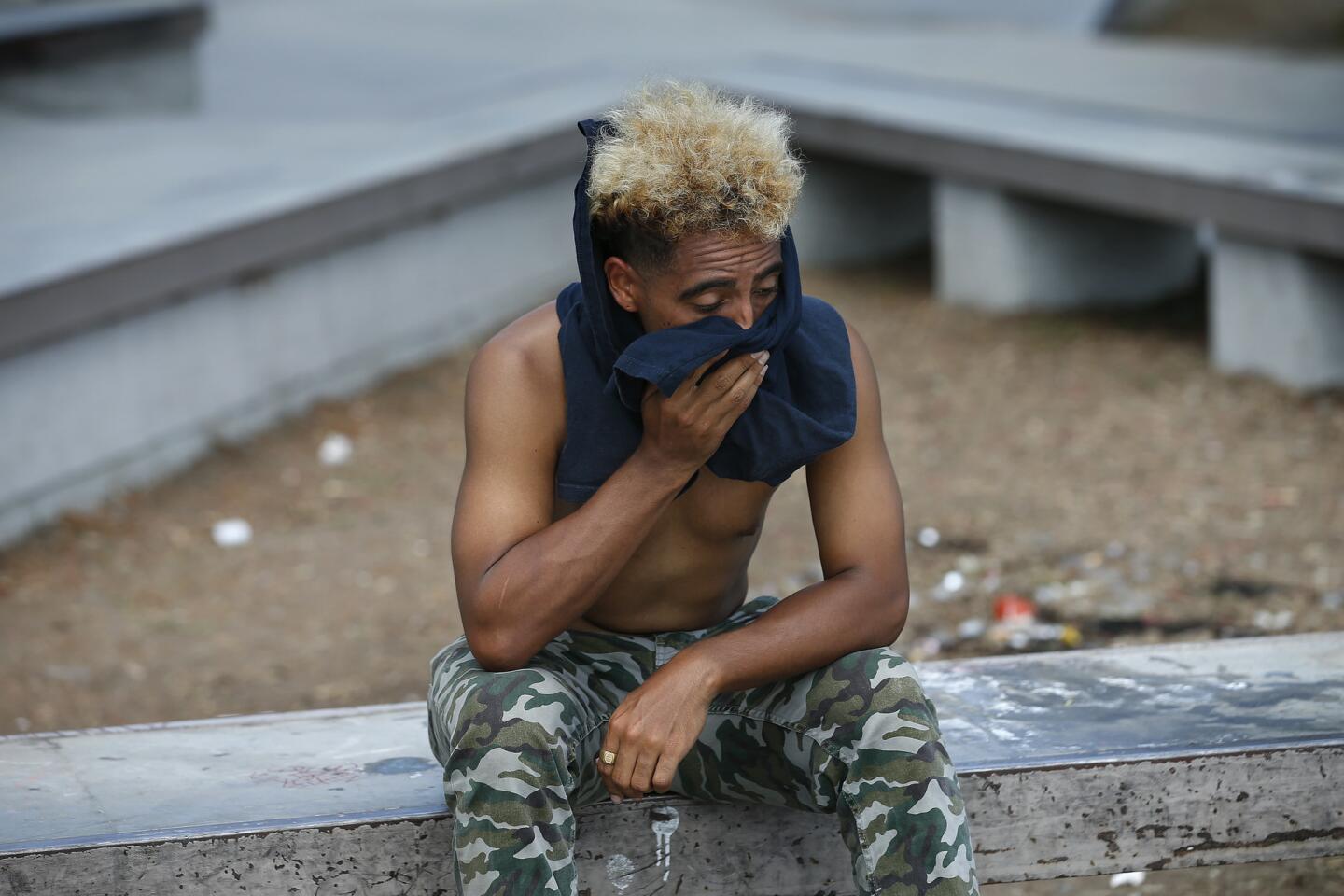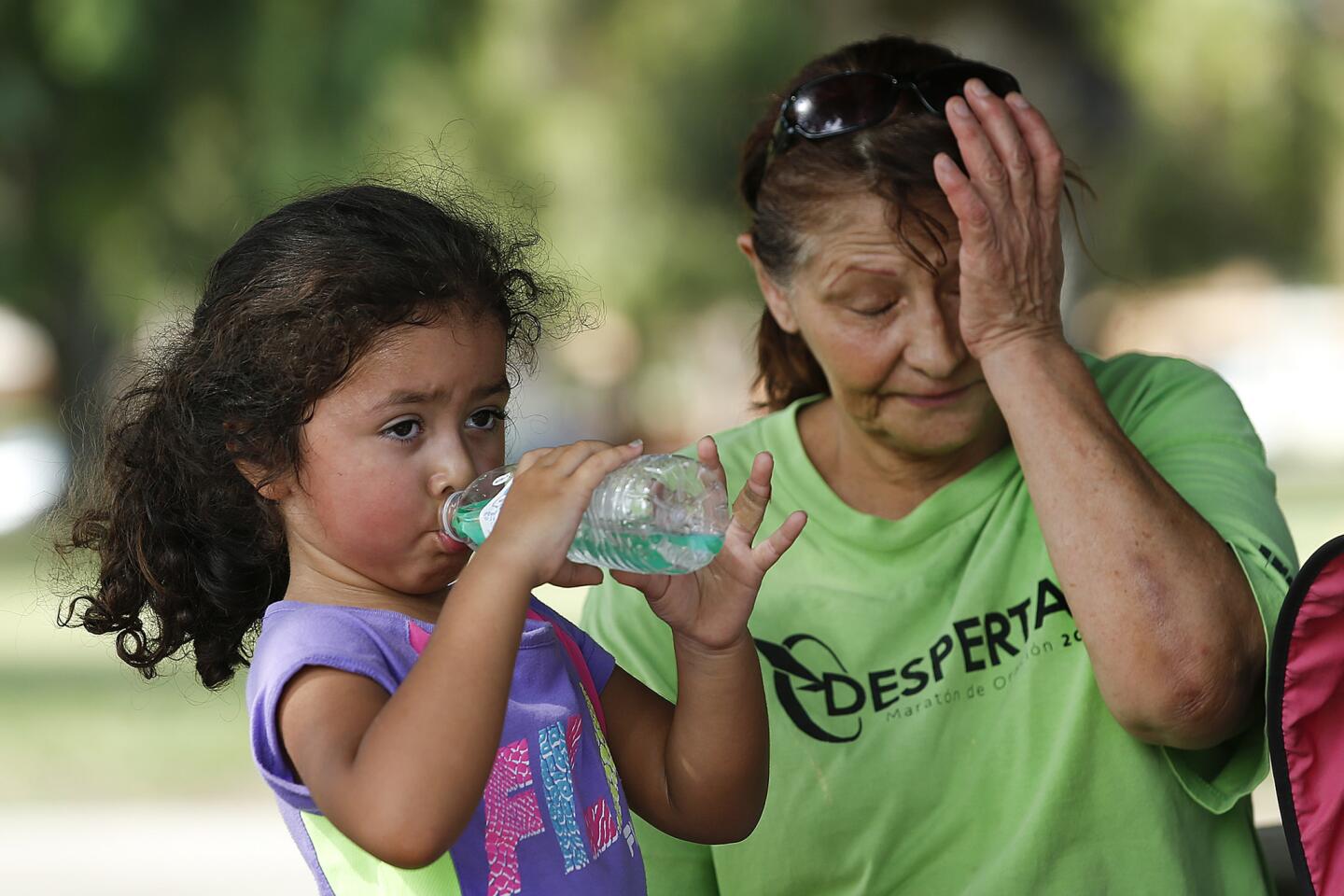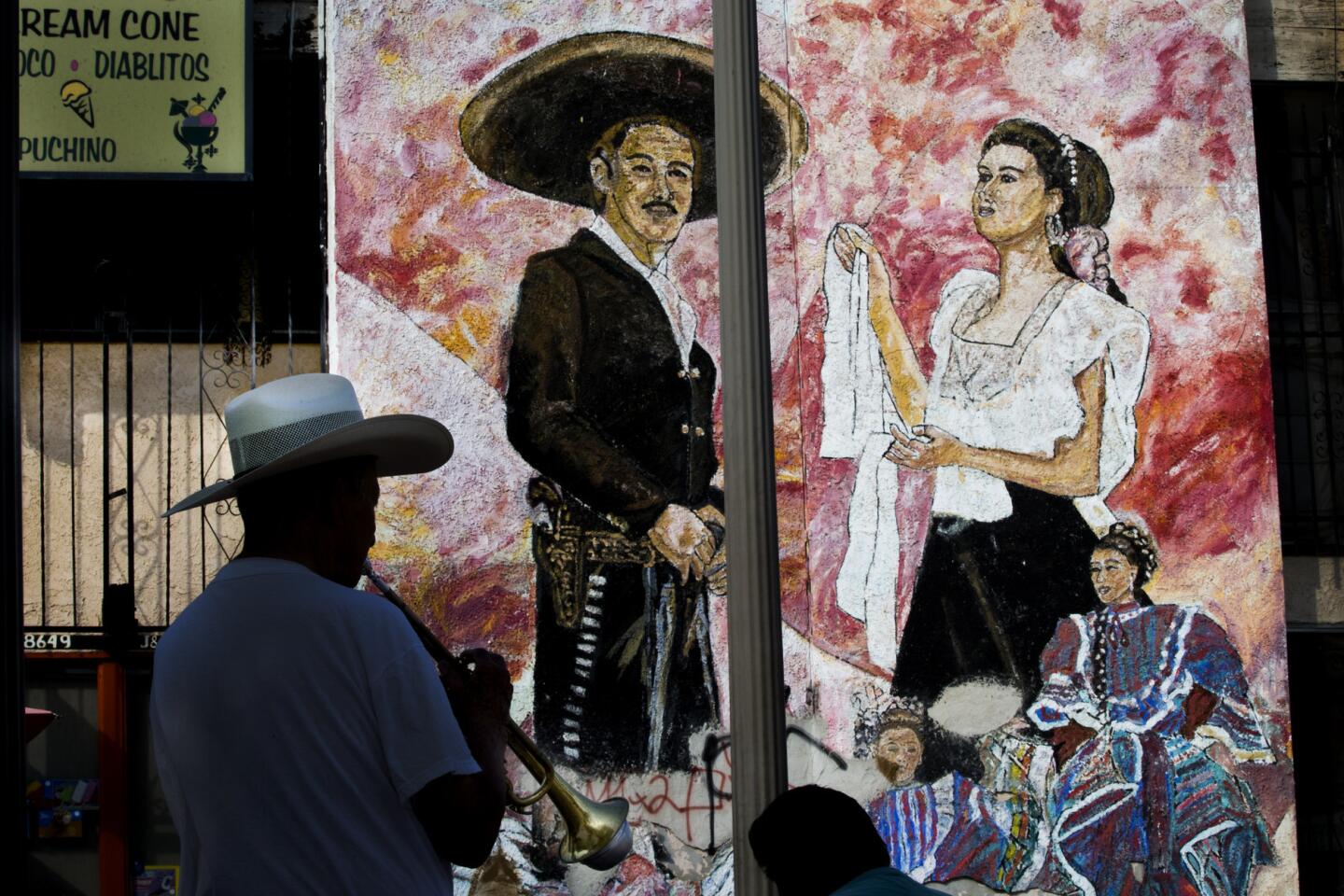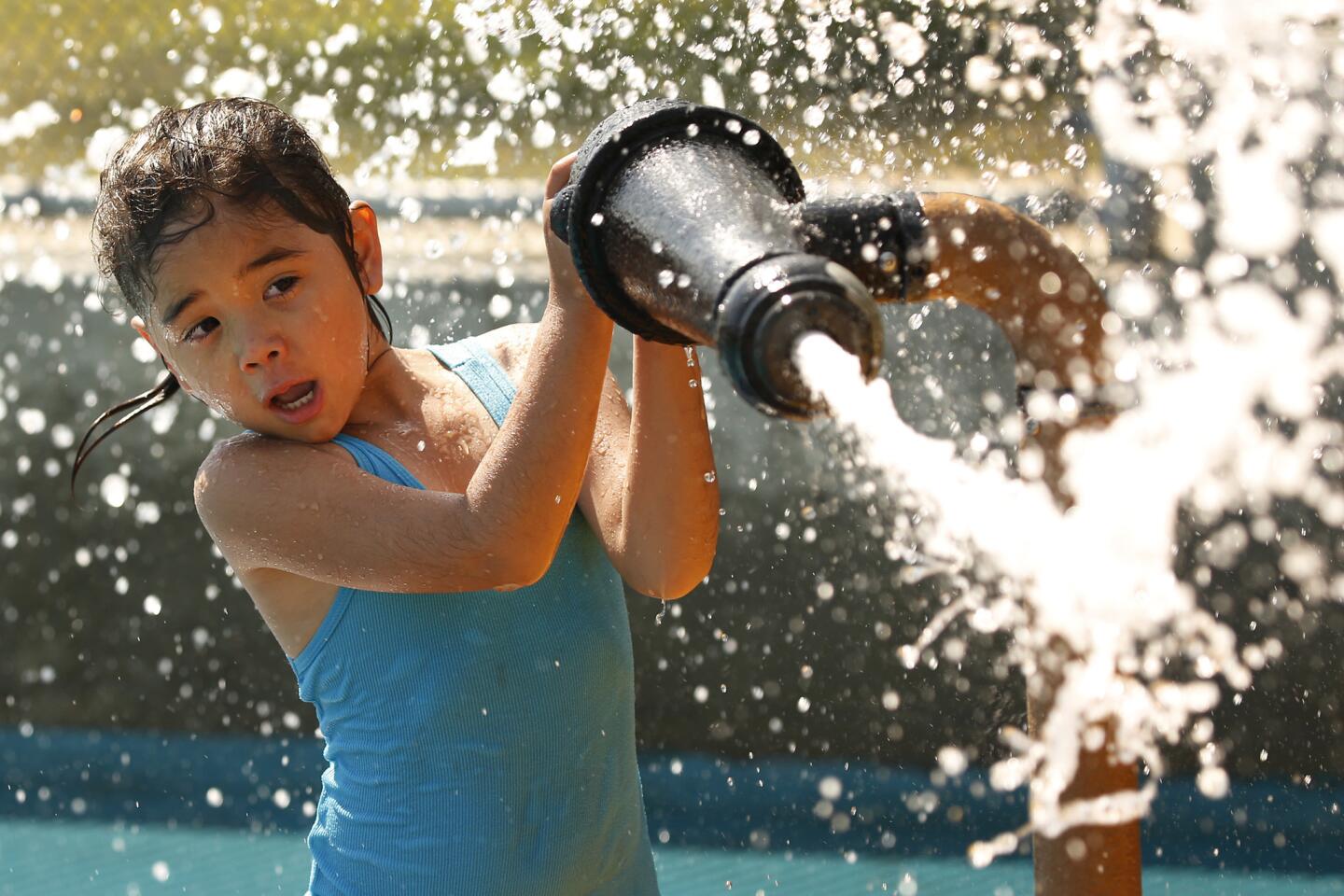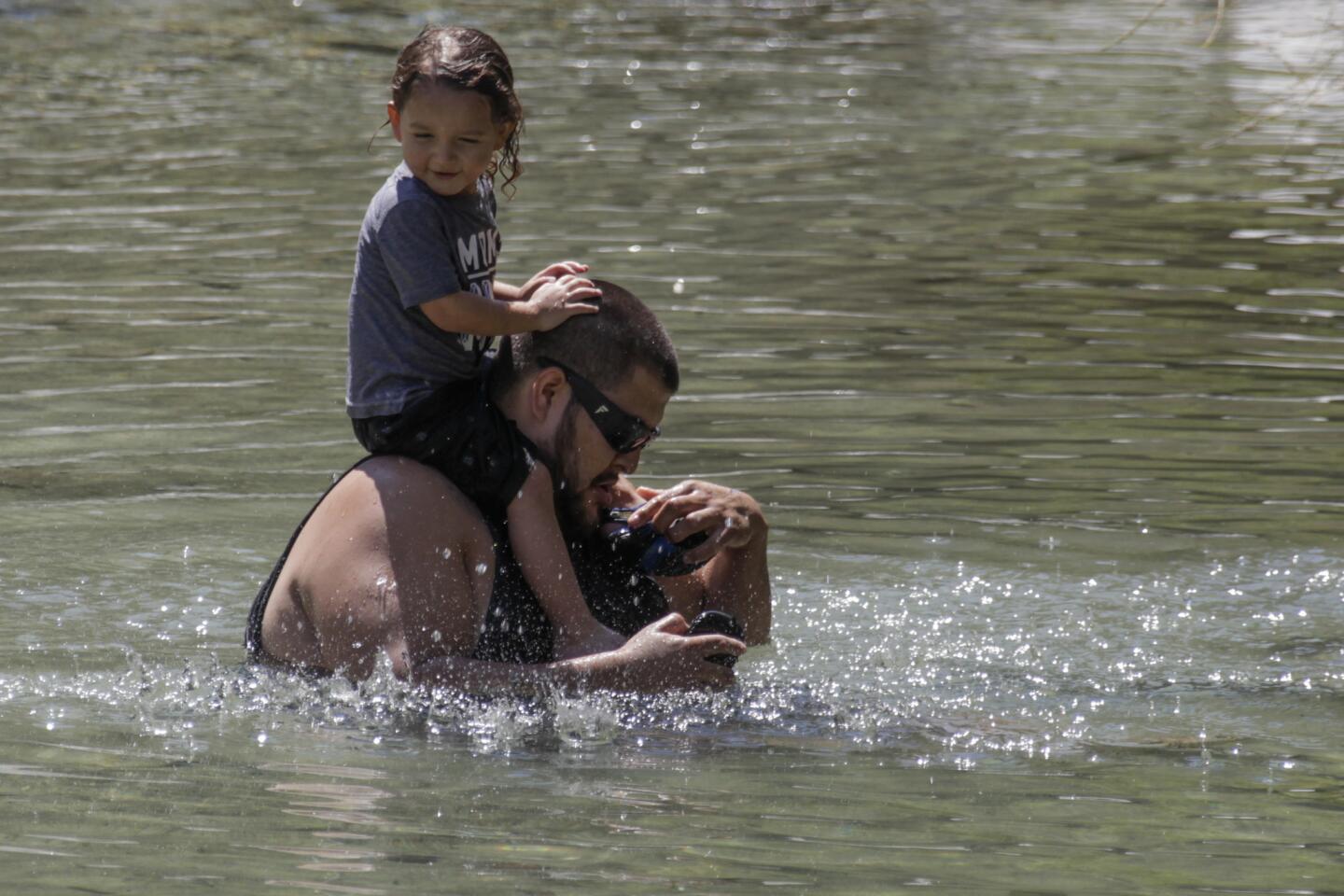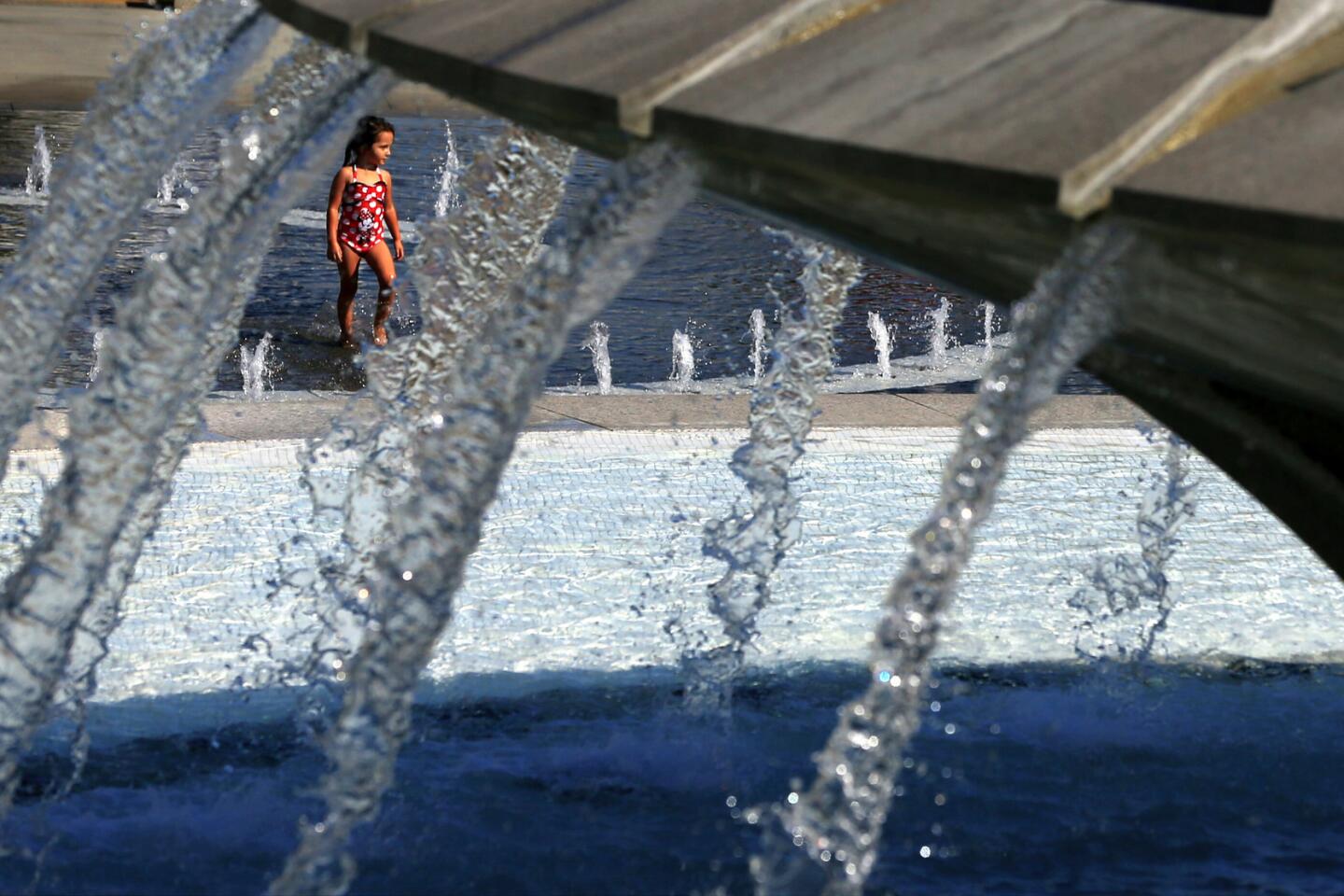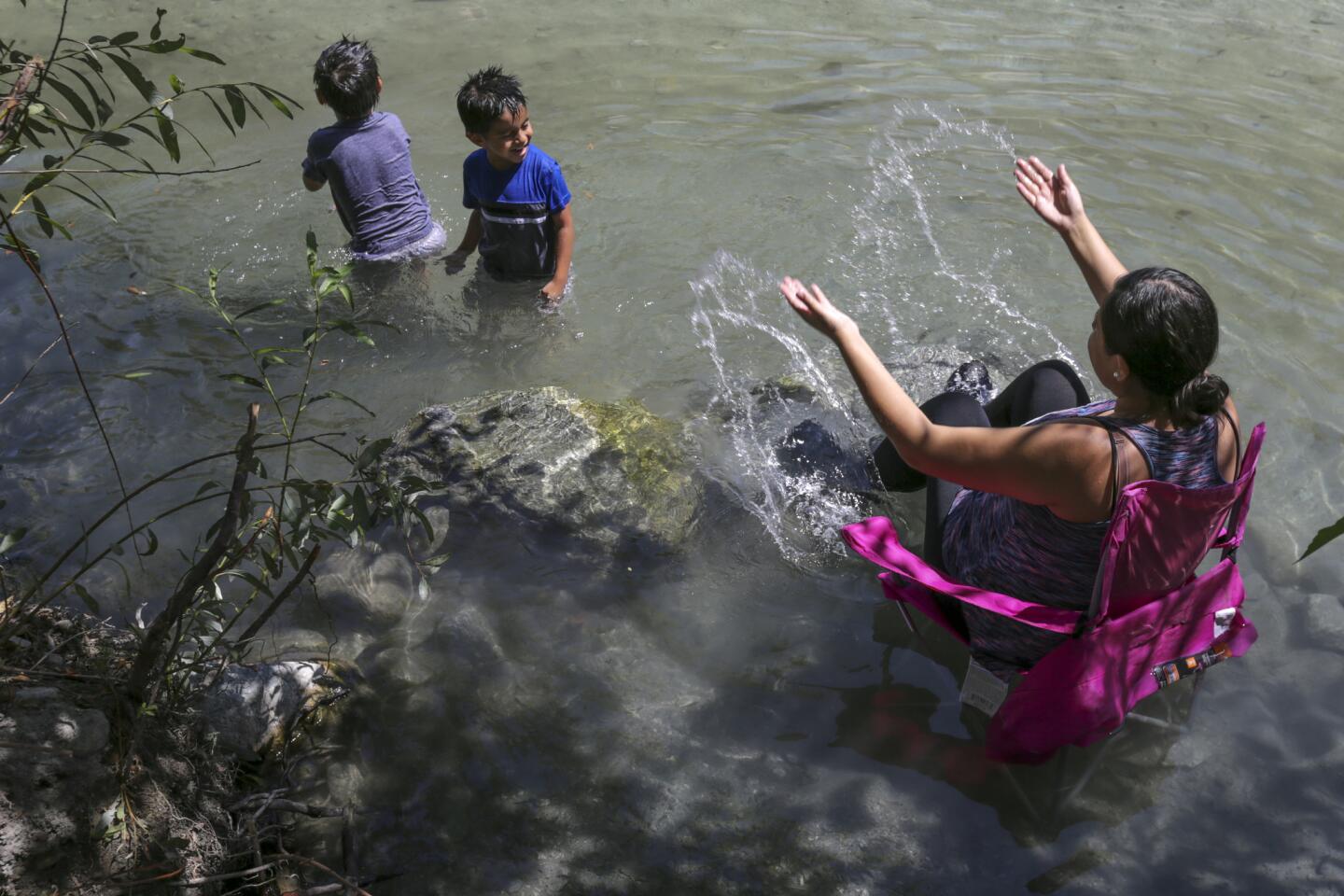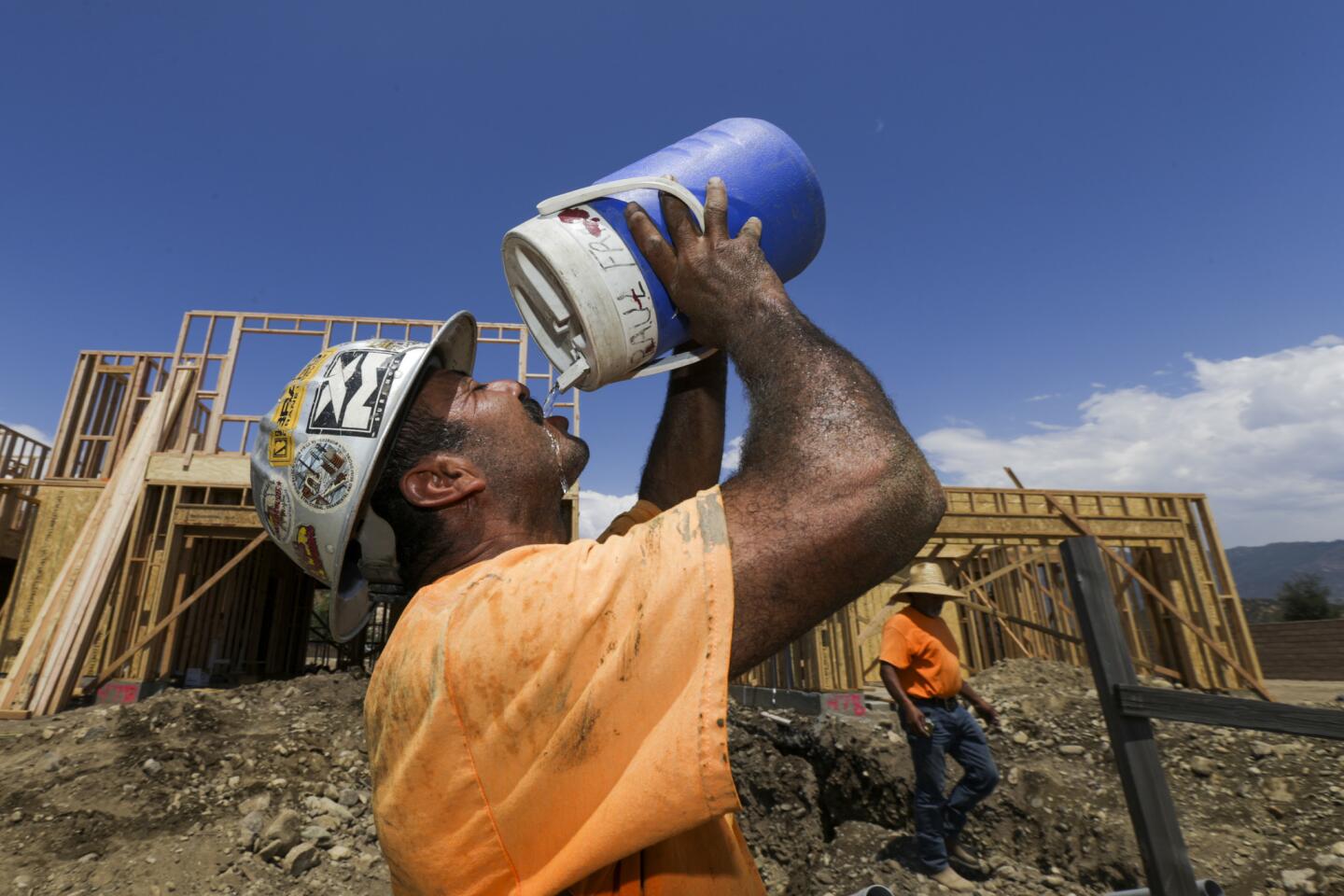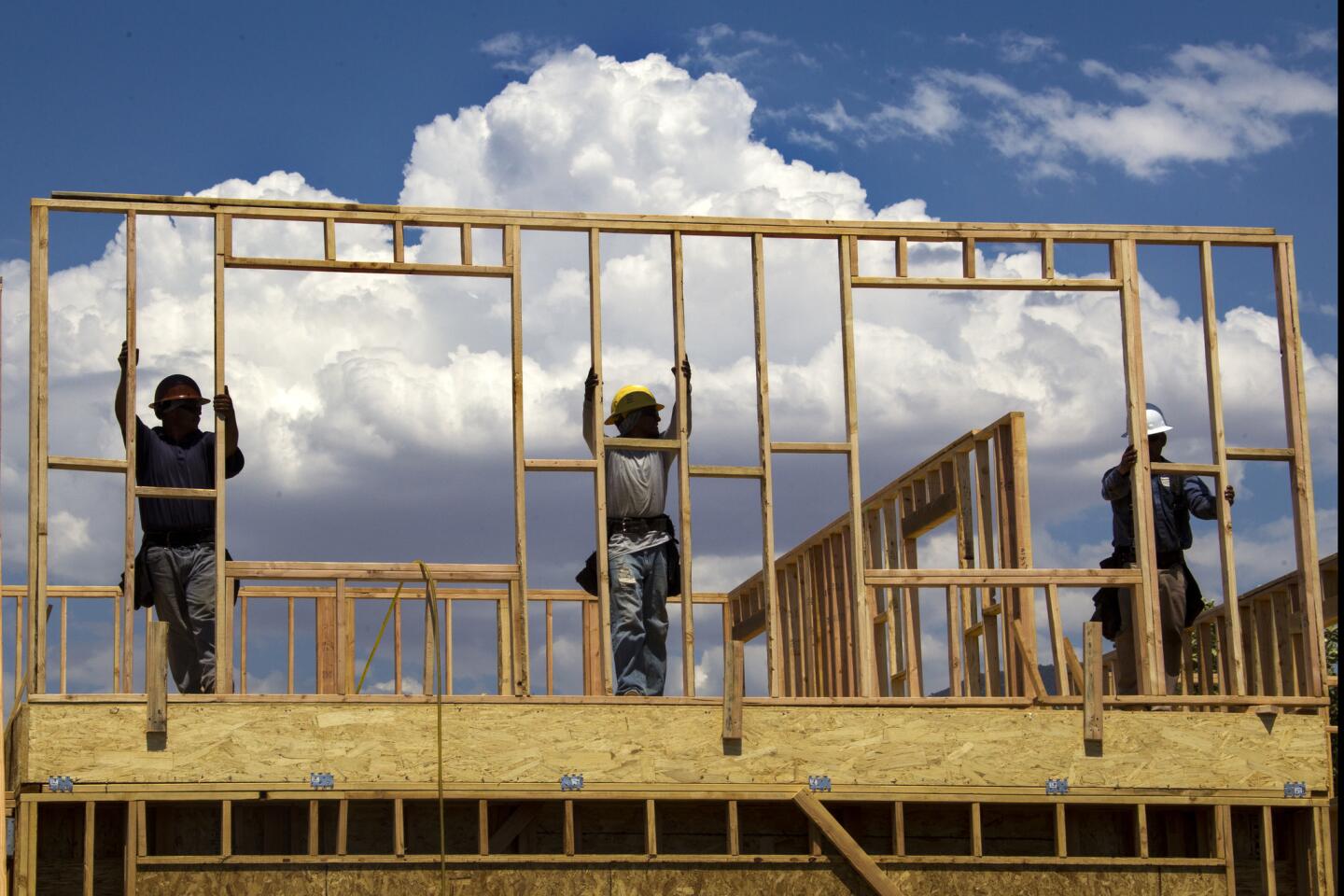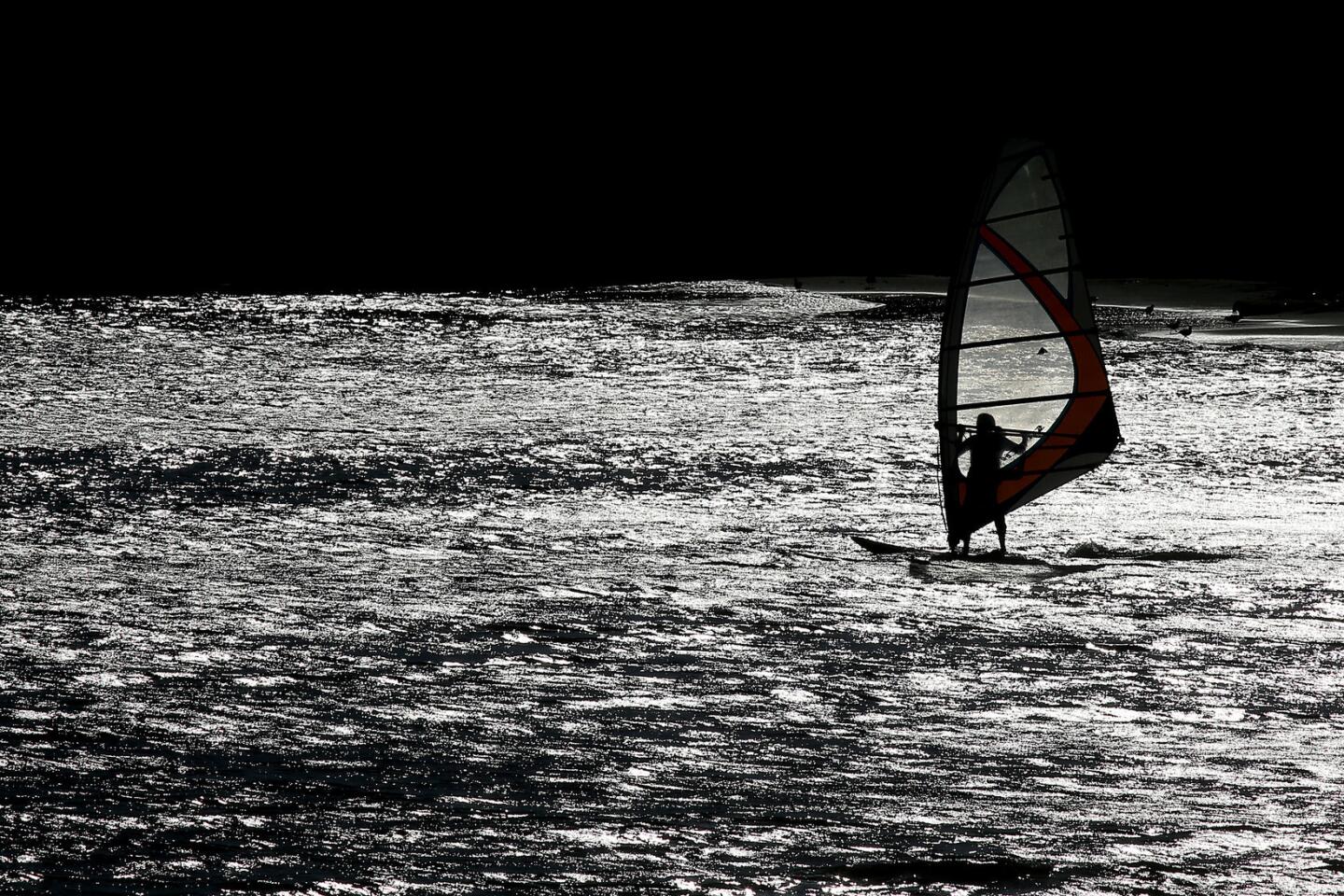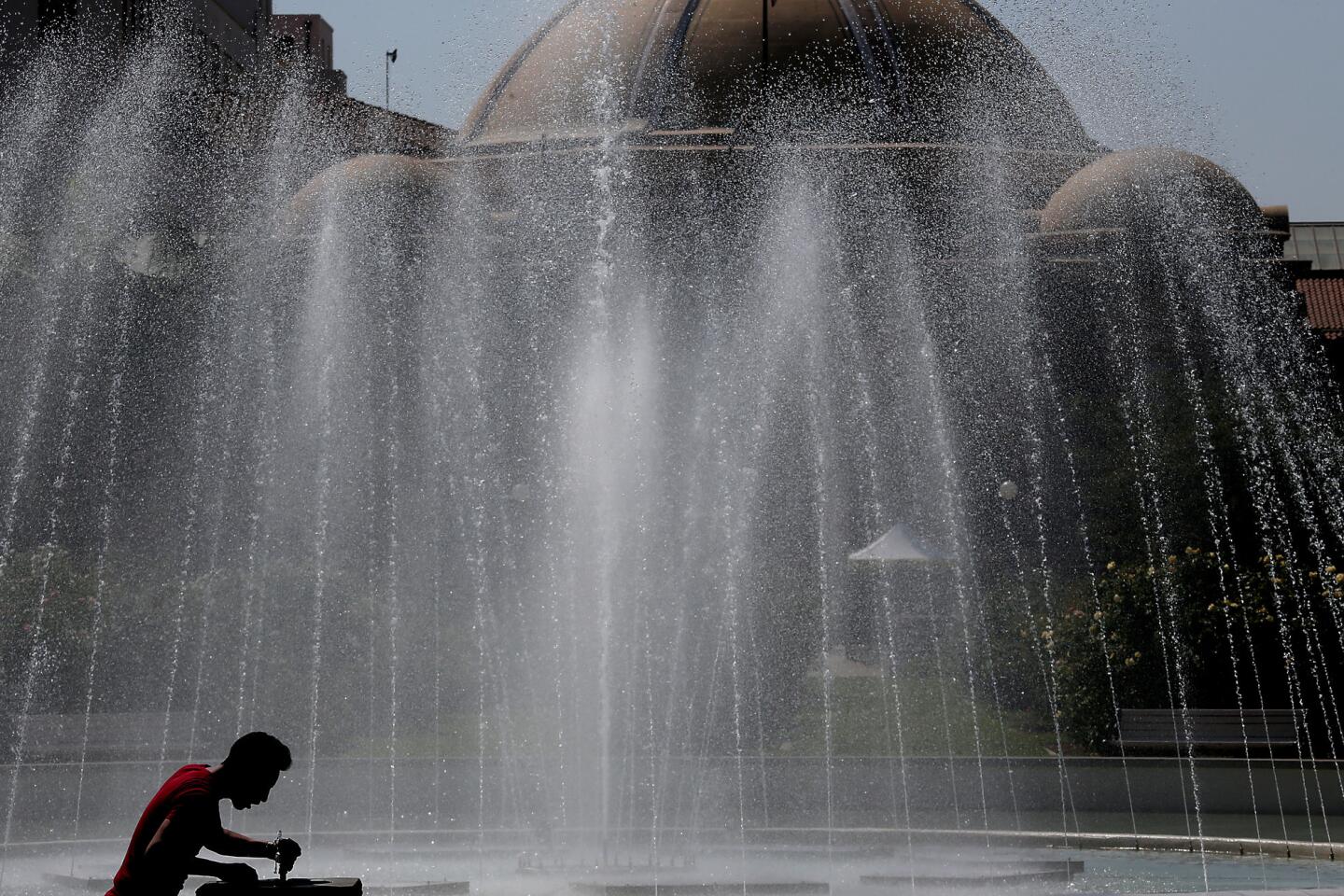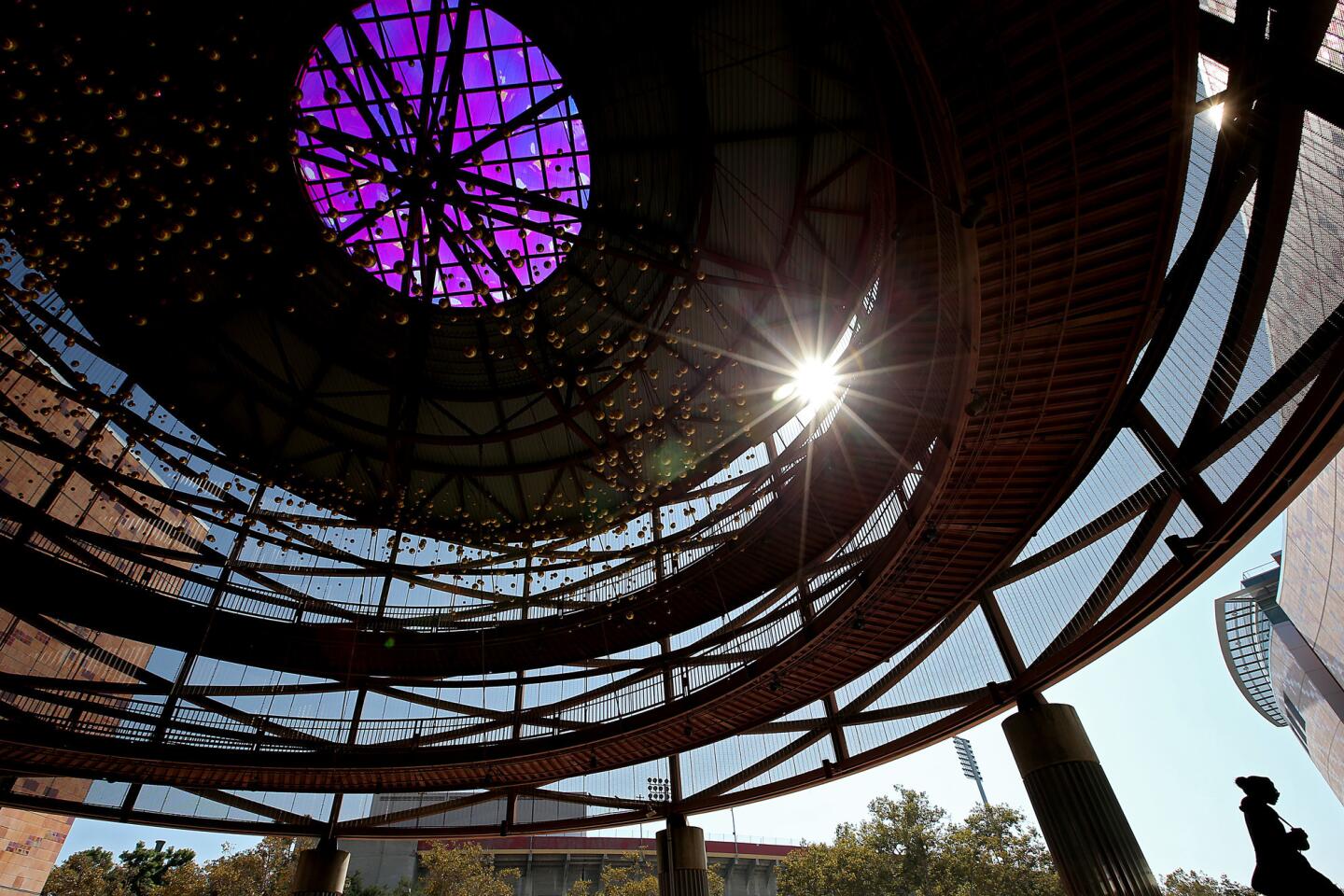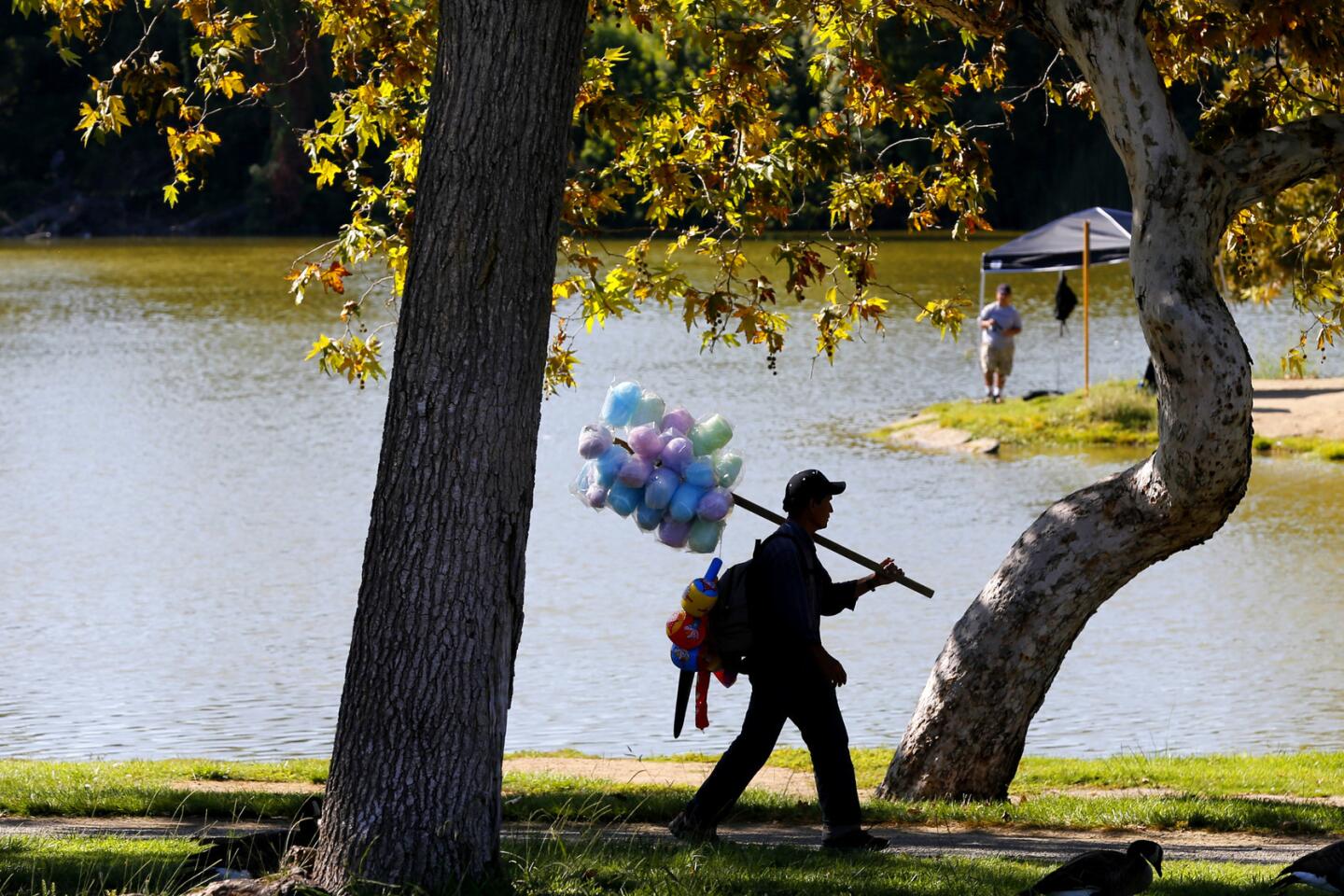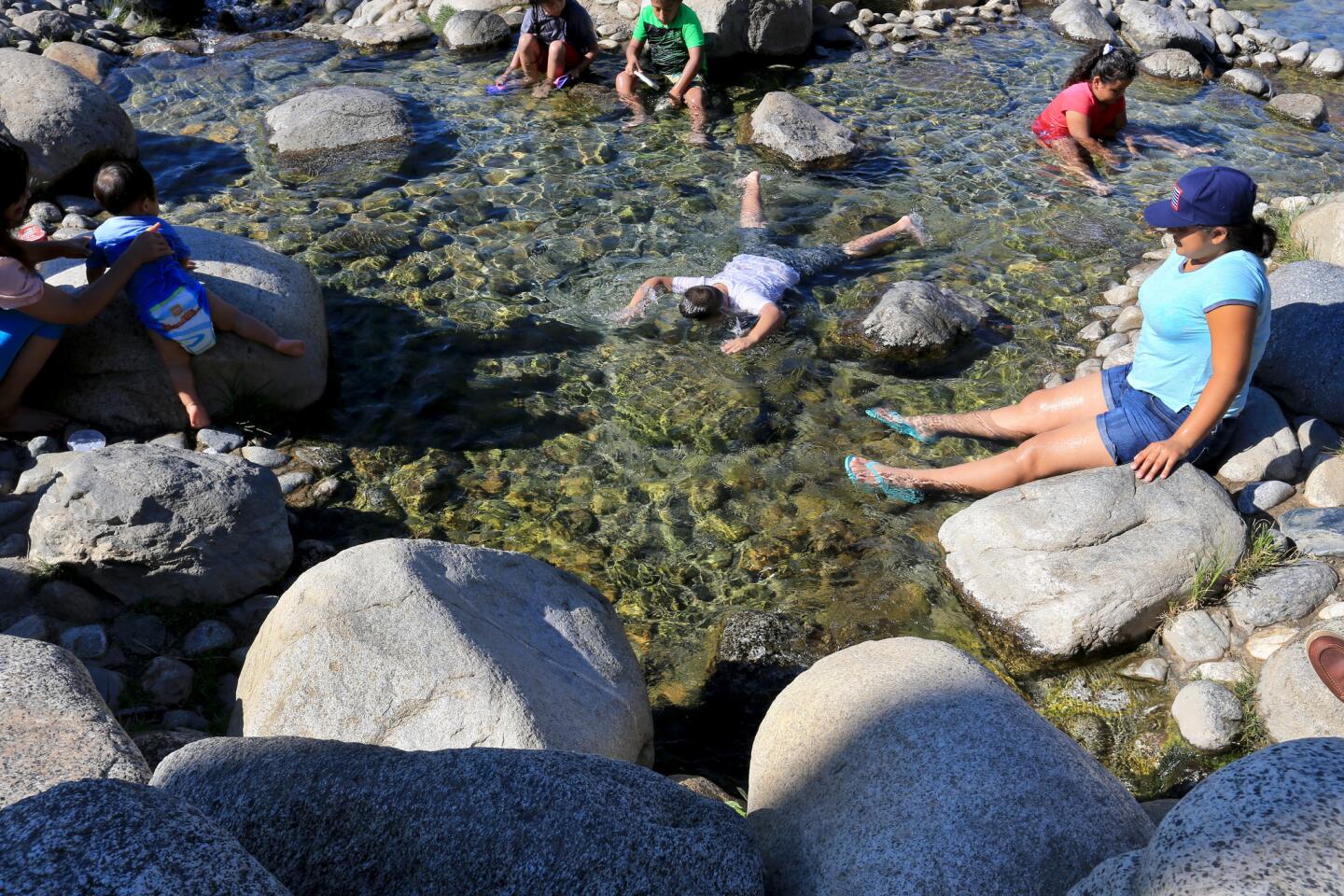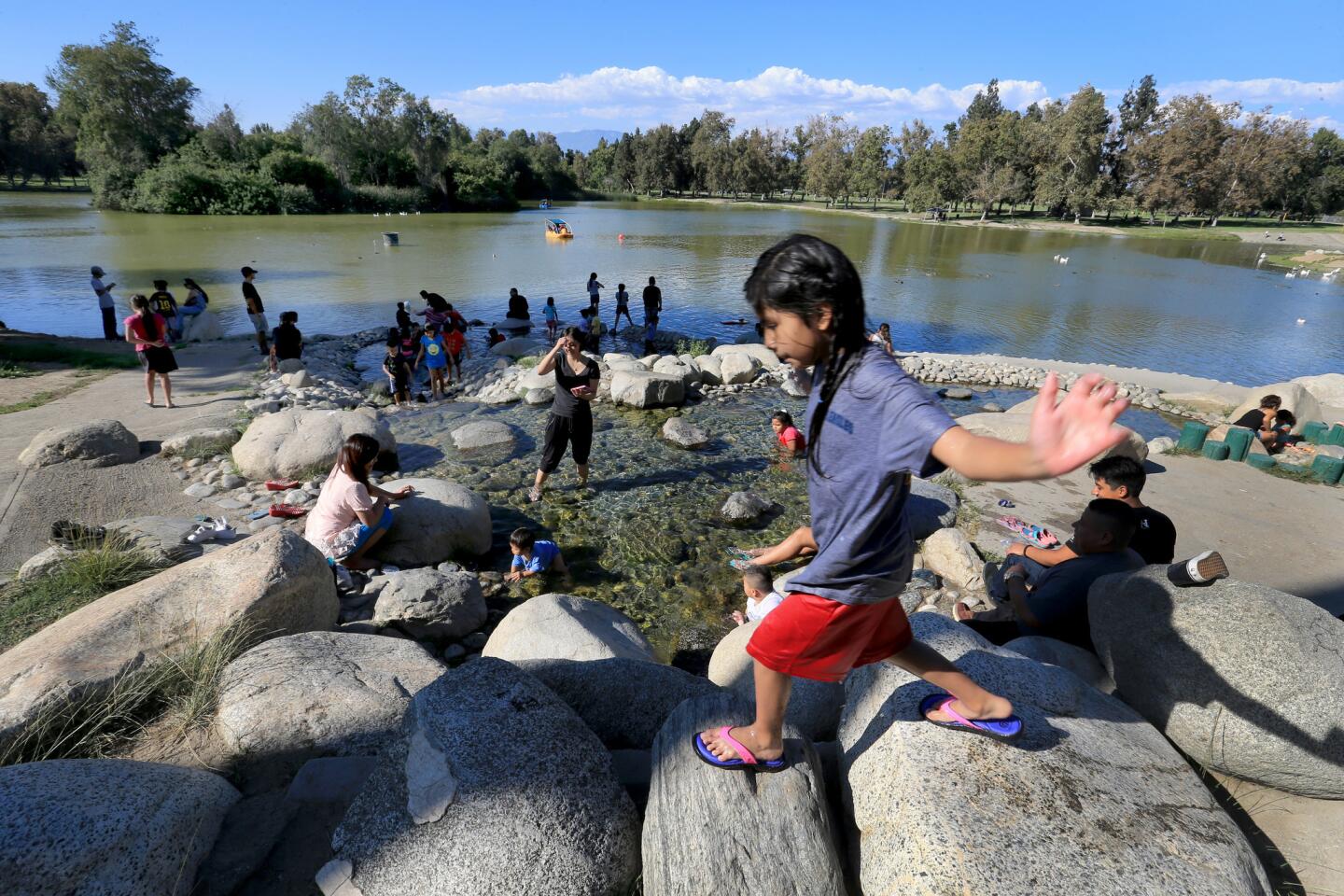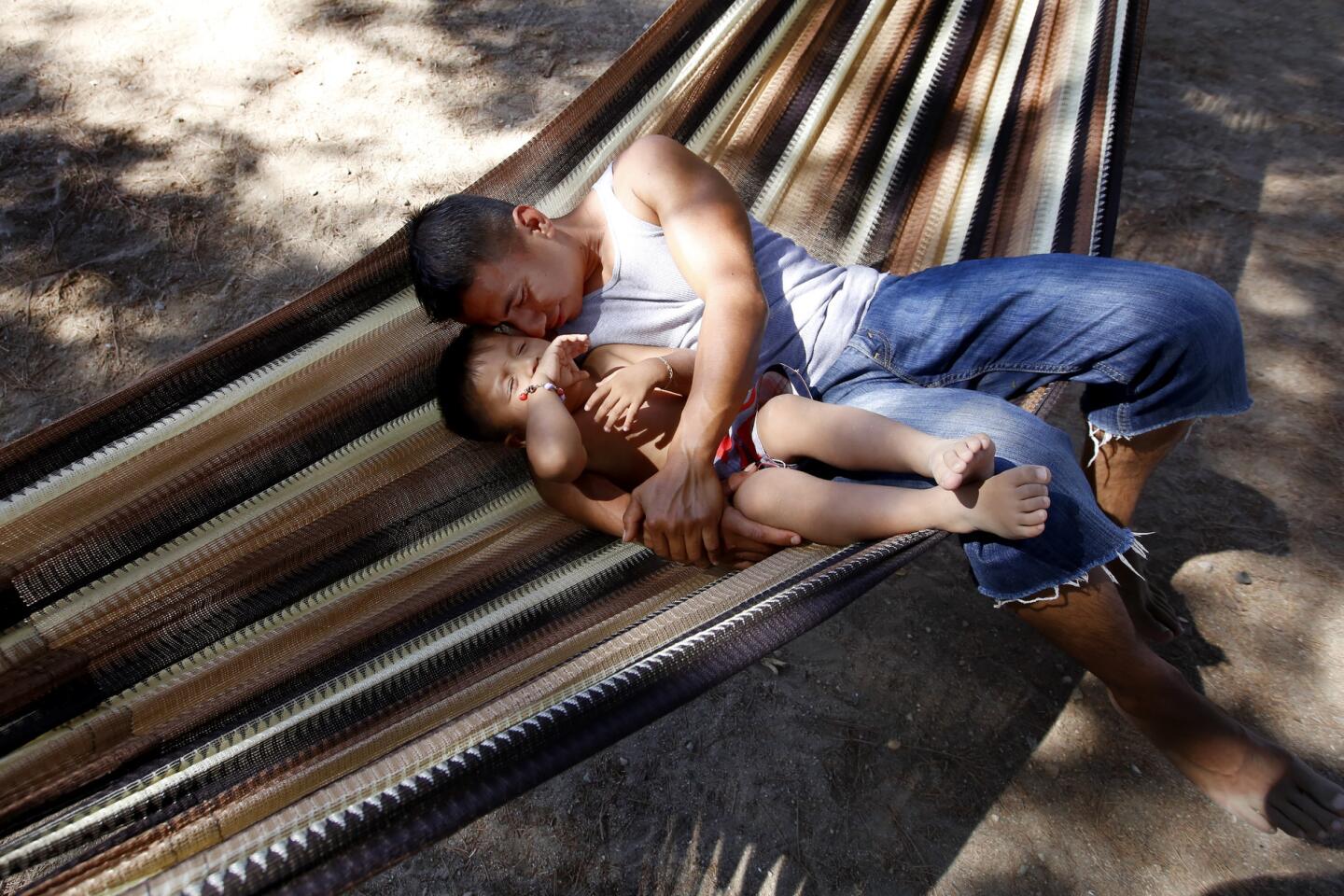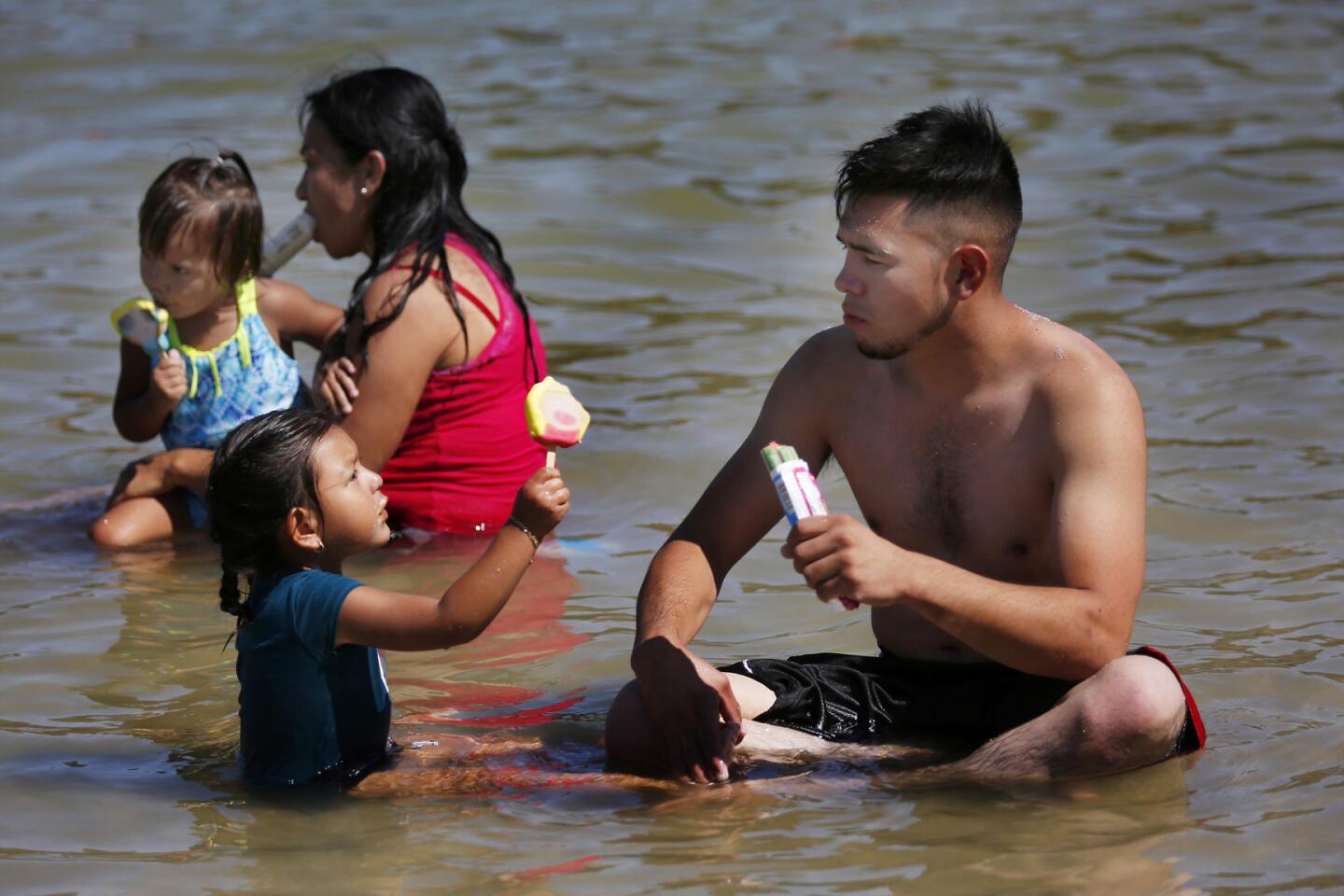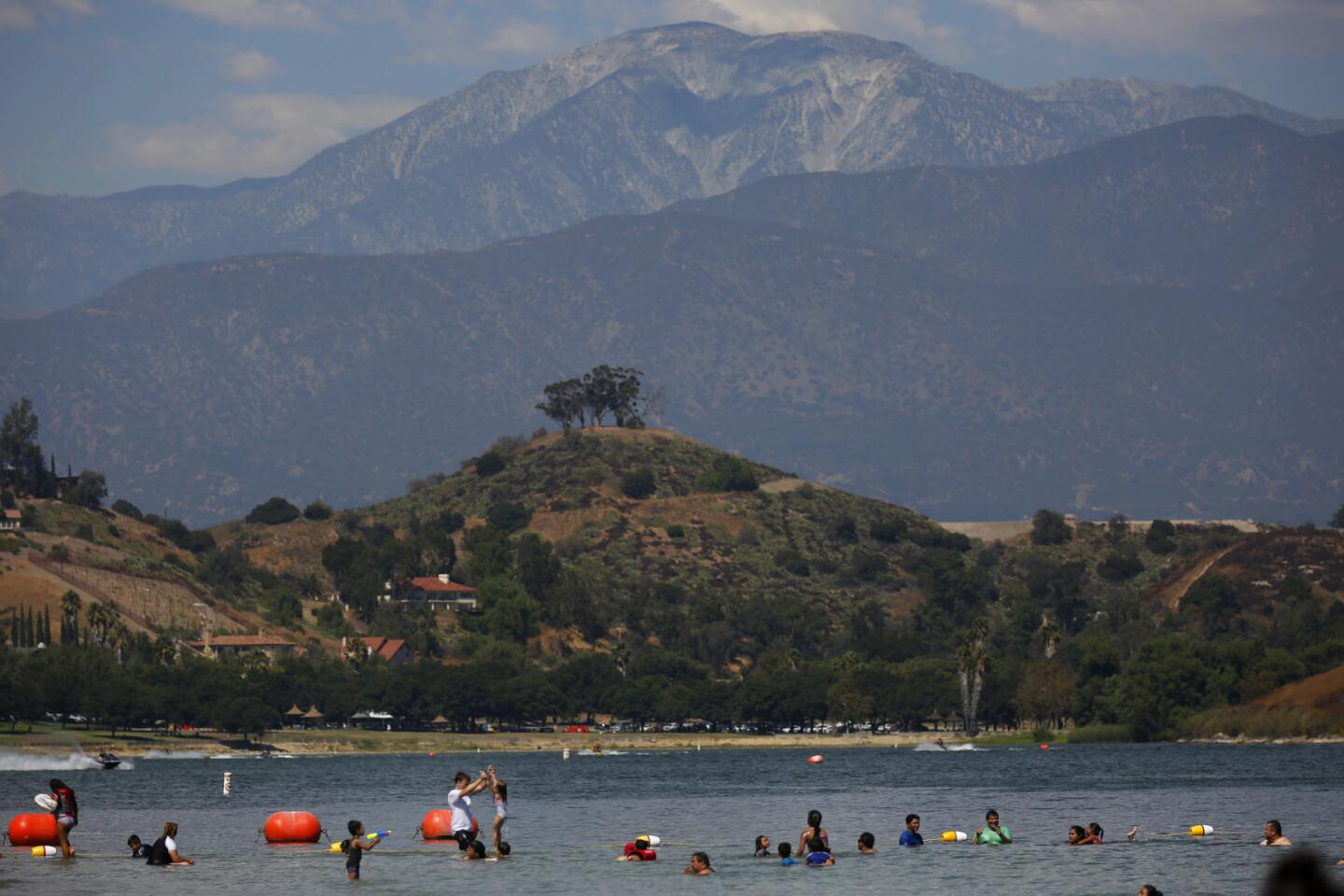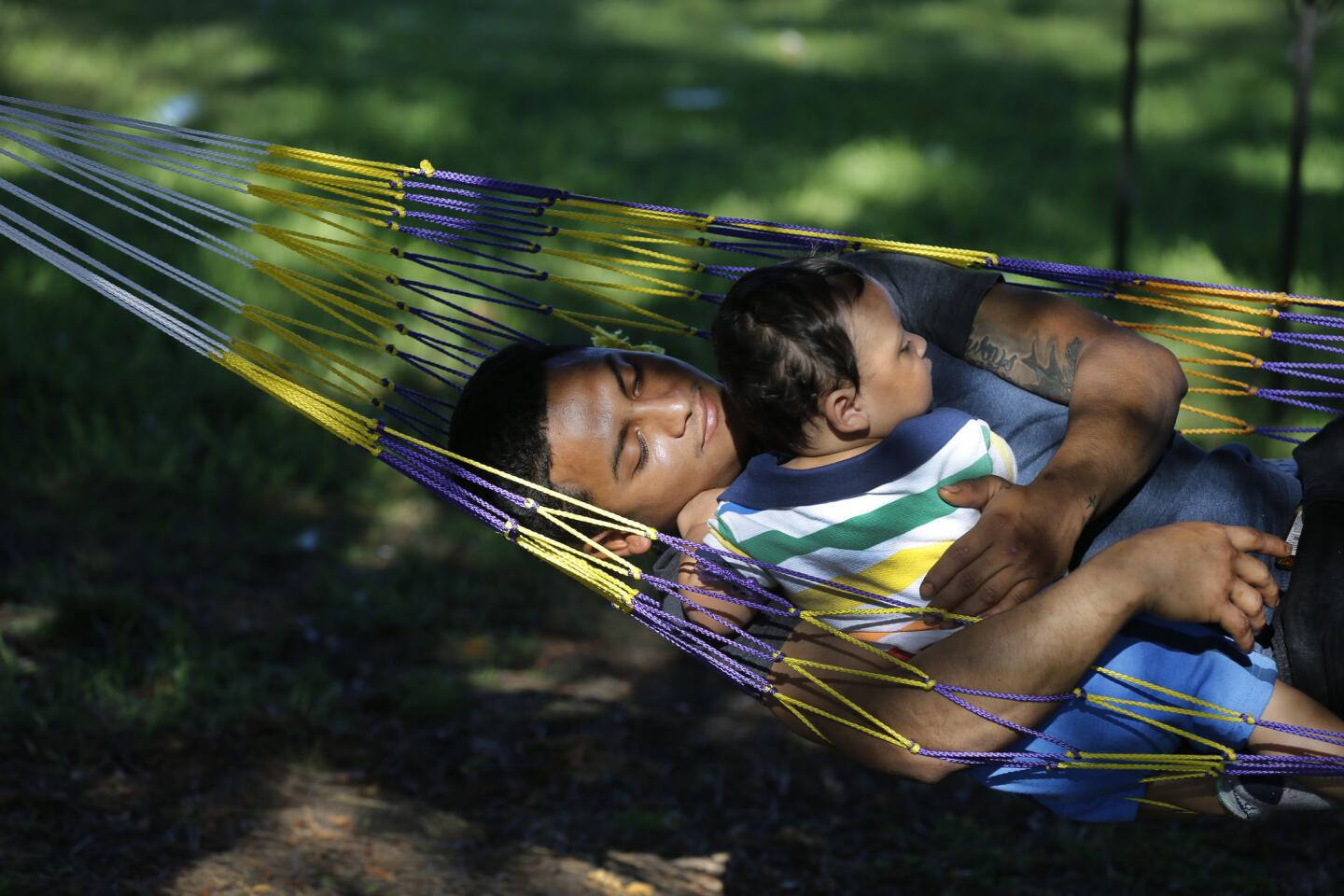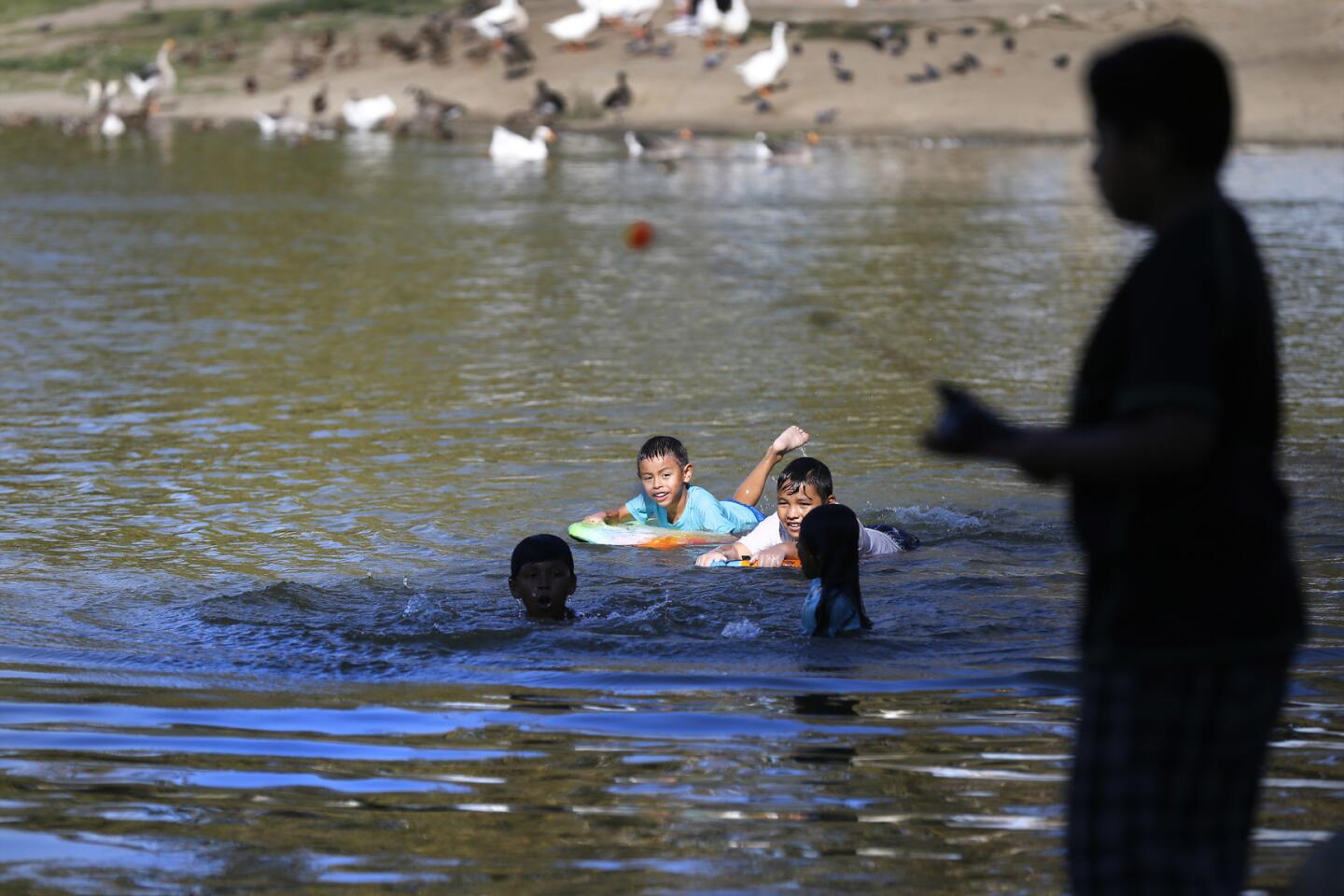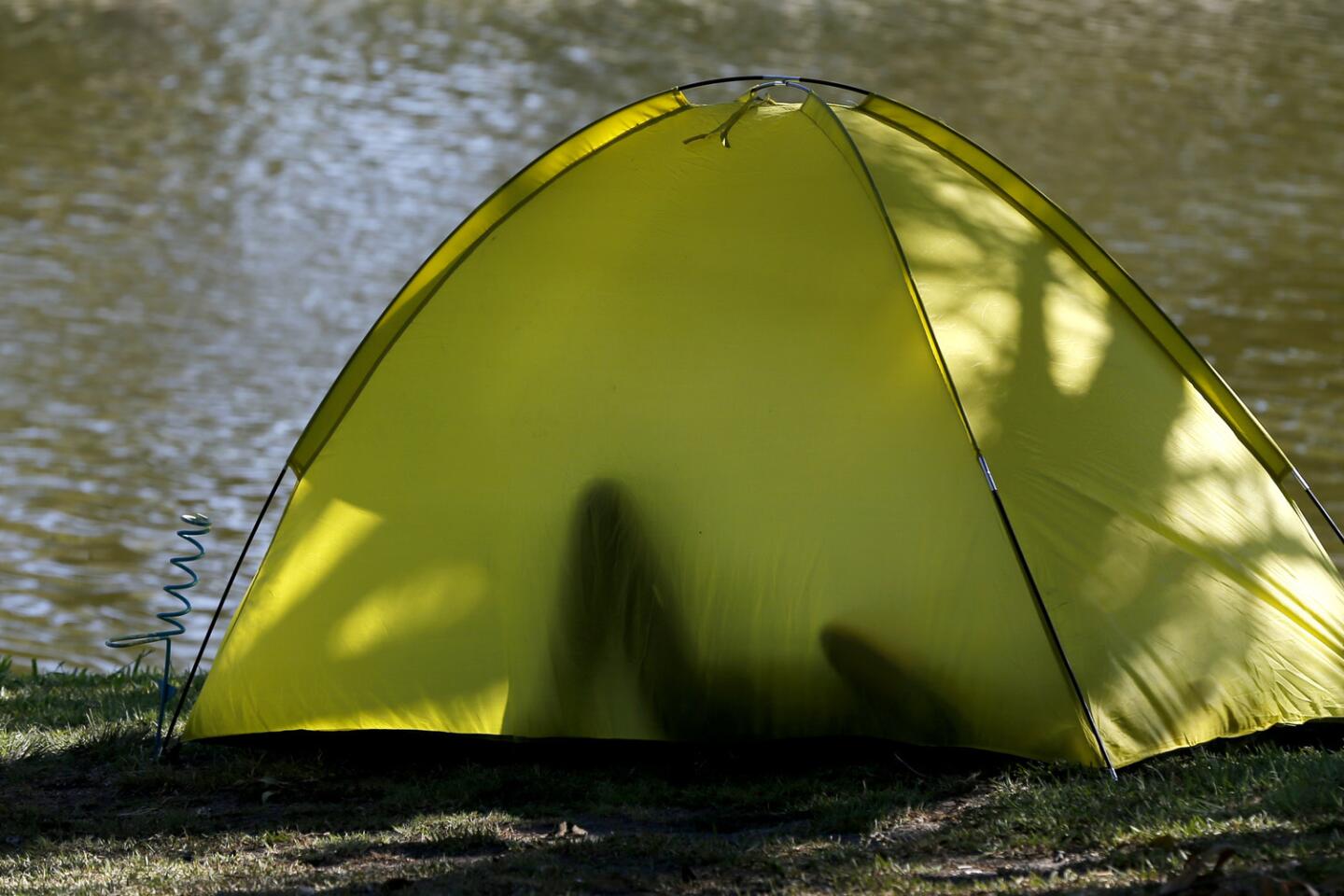Record heat, lightning, fires, intense rain: California’s extreme weather gets wilder
- Share via
The heat wave that has gripped California for a week took a dramatic turn Thursday as lightning storms sparked brush fires, knocked out power to thousands and caused downpours across the region.
Forecasters said the extreme weather will continue through the weekend, with some parts of Northern California flirting with all-time record high temperatures.
Lightning strikes were reported in many areas Thursday, with some sparking a series of brush fires near the 5 Freeway in the Santa Clarita Valley.
In Santa Monica on Thursday evening, city officials asked beachgoers to immediately evacuate all ocean areas and seek cover until the storm ended.
Intense storm cells danced around the region, delivering bursts of heavy rain through the evening.
Residents in Colton lost power Thursday after lightning hit a power substation.
Meanwhile, the record heat continued to tax the power grid.
Los Angeles Department of Water and Power customers used more electricity on Thursday battling the heat wave than has ever been used in the agency’s history, DWP officials announced. Customers hit a peak demand of 6,502 megawatts at 4:15 p.m., shattering the previous record of 6,396 megawatts on Sept. 16, 2014. The agency expects a new record to be set Friday as the heat wave continues.
The California Independent System Operator called for voluntary electricity conservation on Friday.
In Boyle Heights, an estimated 11,000 residents were without power overnight Wednesday as high demand overloaded equipment to the point of failure. Power was restored by 6 a.m. Thursday, officials said.
Southern California’s heat wave should peak by Friday. But in Northern California, triple-digit temperatures are expected to continue through the Labor Day weekend. That’s worrisome because there are already more than a dozen wildfires burning in the Sierra Nevada, and smoke is settling in the populated valley below.
“The fire, heat and smoke — it’s going to be blech, a hot weekend,” Bill Rasch of the National Weather Service said from his Bay Area office Thursday. “It’s miserable up there.”
And it may be unprecedented.
According to UCLA climate scientist Daniel Swain, the heat this weekend may reach levels never before seen in recorded history in some Northern California cities. Sacramento, no stranger to warm summer days, could see a week of 100-degree heat. That’s never happened there in September, the National Weather Service said.
It could be just as brutal in the coastal valley city of Livermore, where the hottest temperature on record is 115 degrees, said Steve Anderson of the National Weather Service. It’s expected to hit 113 degrees there on Friday and 114 degrees on Saturday.
“When we’re approaching all-time record highs, that’s very unusual,” Anderson said.
The heat wave is part of a larger high-pressure system that has settled over the Great Basin and has been broiling states from California to Utah and Arizona to New Mexico.
The weather pattern is also at least partially responsible for the behavior of Hurricane Harvey in Texas, said Bill Patzert, a climatologist with NASA’s Jet Propulsion Laboratory. The system acted as a barrier that blocked Harvey’s path inland. The storm was stopped in its tracks right over Houston, where it continued sucking up moisture from the Gulf of Mexico and raining it down on the flooded landscape below.
“Until the large-scale pattern changes, it will continue to soak Texas,” Patzert said.
In California, if a community isn’t prepared for the enduring heat, it can become dangerous. Concord, Santa Rosa and Antioch have opened cooling centers for the weekend.
“So we get into a situation where 110 in the desert isn’t a big deal at all but 110 in one of the coastal valleys is a very big deal indeed. And it affects human health to a considerable degree,” Rasch said. “They have a very hard time physically when the weather gets that warm.”
Crews battling 16 wildfires in California also have had to cope with the heat along with the excruciating physical demands of the job.
In Butte County, more than 1,100 firefighters who are tackling the Ponderosa fire trudged through rugged woodlands east of Oroville in broiling temperatures, according to the California Department of Forestry and Fire Protection.
“The heat does not work in our favor by any means,” said Paul Lowenthal, a Cal Fire spokesman.
Fire crews had hoped to make significant gains battling the 3,500-acre blaze overnight, but weather conditions remained hot and dry.
The weather also takes a toll on the state’s infrastructure. The California Independent System Operator’s flex alert on Friday is the fourth this year and the second this week. The message to consumers: Conserve energy.
When temperatures don’t drop at night, people keep their fans and air conditioners on longer, and electrical equipment in the grid doesn’t have a chance to cool. Those issues led to multiple power outages across Southern California this week and caused thousands to lose power in the Bay Area during the last major heat wave in June.
For Southern California, relief could come next week, according to forecasters.The region’s heat advisory expires Saturday, and thunderstorms and cooler temperatures are expected Monday, Swain said.
ALSO
Harvey is likely to be the second-most costly natural disaster in U.S. history
Record heat wave brings lightning, brush fires and intense rain to Southern California
California Supreme Court decision could end secrecy over police capture of license plate images
More to Read
Sign up for Essential California
The most important California stories and recommendations in your inbox every morning.
You may occasionally receive promotional content from the Los Angeles Times.
